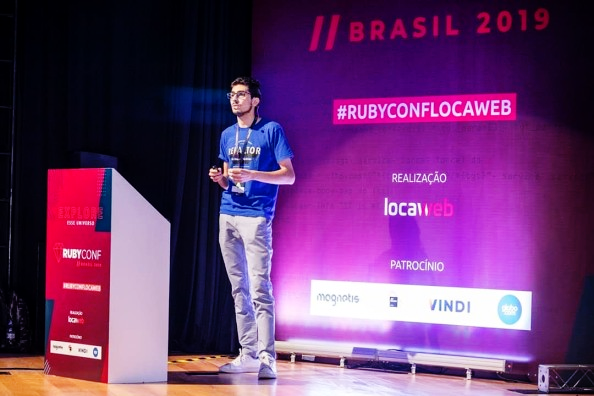CFP: the first step to speak in a programming conference
CFP (Call for Papers or Call for Presentations) is a step that several conferences have. It is often visualized as a difficult step, and sometimes we are afraid of applying (for several reasons) and potentially end up with very good ideas unheard.

Si querés leer este post en español, clickeá acá.
What is a CFP?
CFP (Call for Papers or Call for Presentations) is a step that several conferences have. It helps the organization committee to select the best proposals that could fit into the event.
It is often visualized as a difficult step, and sometimes we are afraid of applying (for several reasons) and potentially end up with very good ideas unheard.
Common sections of a proposal
The required data to submit a proposal is not always the same, it depends on the conference. But more or less we have these parts:
- Title: how your talk is named. How it will appear if it is approved and announced.
- Abstract/elevator pitch: in my opinion, the most important part of the proposal. Because it summarizes your idea, but also it is the place where you "sell" your presentation.
- Description: in depth explanation of your presentation, which topics will it cover, in general what people should expect from it. Anything that was not in the abstract but you think it will be relevant.
- Notes for reviewing committee: sometimes reviewers need to hear more than the description, especially more context. This is a section you can use to convince reviewers. Include links, or any reference of your current and even past work related to the proposal.
- Details of the presentation: this is a place where organizers ask you things like session live vs. recorded, session time (usually from a list of options), type of audience (beginner/intermediate/advanced), special requirements for your presentation.
- Speaker information: your name, bio, pronouns, profile picture, websites and any information that might help people to know about you.
Tips for building a good proposal
Let me present some tips based on my experience applying to several CFPs from different conferences.
Make the proposal attractive
There is a grey area between selling something you don't have (setting too much expectation) and being too humble at the point of underestimating your own work. This grey area is where your proposal should live. Be honest before all, but don't forget to highlight the things that you're most proud of. Beware of your own biases, show the proposals to peers and get early feedback. Use keywords; for instance, if the conference is about clean code, you might want to mention words like "refactoring" as long as they fit with your topic.
Make the proposal unique
CFPs have a competitive aspect: there might be a chance of many people trying to speak about the same topic. Why should people listen to you? Including experiences, tips, and any unique piece of work you did as part of your proposal.
Present a plan
A plan could be also attractive. It helps to communicate what's on your mind. Does your talk have well-defined stages? A live coding session? A time for engaging with the audience? Mention it!
Know your audience
Your proposal needs to be attractive not just because the content is good, but because the attendants find it attractive. Something I do before applying to a conference is to look at the website, social media, past events, feedback from people; in order to imagine the audience. Two important questions you might want to ask yourself are:
- What are the different skill levels and the average of the attendants?
- Will the conference have only software developers or people with different roles?
Practice, practice, practice
As software developers, we are not used to writing CFPs. So it's totally fine to fail (it's completely natural), so don't feel bad if your proposal is not accepted.
The only way to be better is by doing it more and more often. I started practicing with one or two proposals in 2018, last year I applied to 8, and this year I'm planning to present ~15 proposals. Am I expecting a 100% approval rate? Of course not! My goal is to learn.
Some conferences give you feedback in case of rejection. You can use that to change your proposal and try the next time in the same event or in another one.
Applying to small conferences increases the opportunities to be accepted. But keep applying to big ones, which are more challenging, and can help you measure how far you can get. It only takes time to write a proposal, the application process is free.
Yes, you can repeat a presentation
Proposals can be repeated across conferences, either if it was rejected or accepted. The audience changes and they still can find your talk interesting. I suggest, though, to do slight variations, taking into account any feedback of your previous presentations, and also your learnings and any improvements you want to apply.
Conclusions
- Having a topic to present is not enough, we need to know where we are publishing and what the audience wants to hear.
- Make your proposal attractive by highlighting the key parts, not selling what you can't offer but also emphasizing the value of your work
- Make your proposal unique by including your experience, opinion, perspective, tips. Try to make people hear it from you rather than someone else.
- Details of your presentation are very helpful. How do you imagine yourself presenting it?
- Practice as much as you can, don't treat rejection as failure, but as an opportunity to learn. Get support and early feedback from peers.
- You can repeat presentations, and you might need to tweak them according to feedback and details of the conference.

